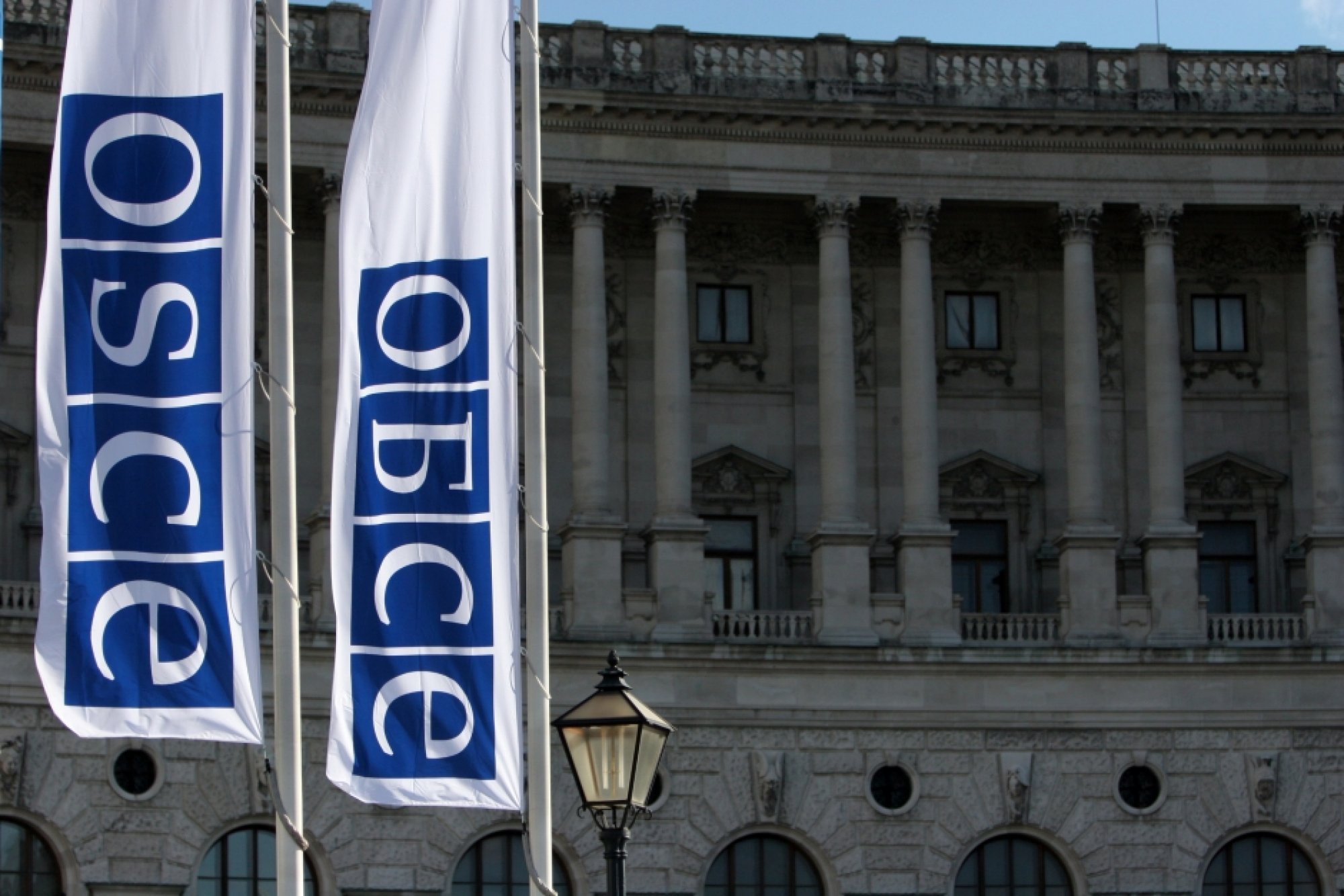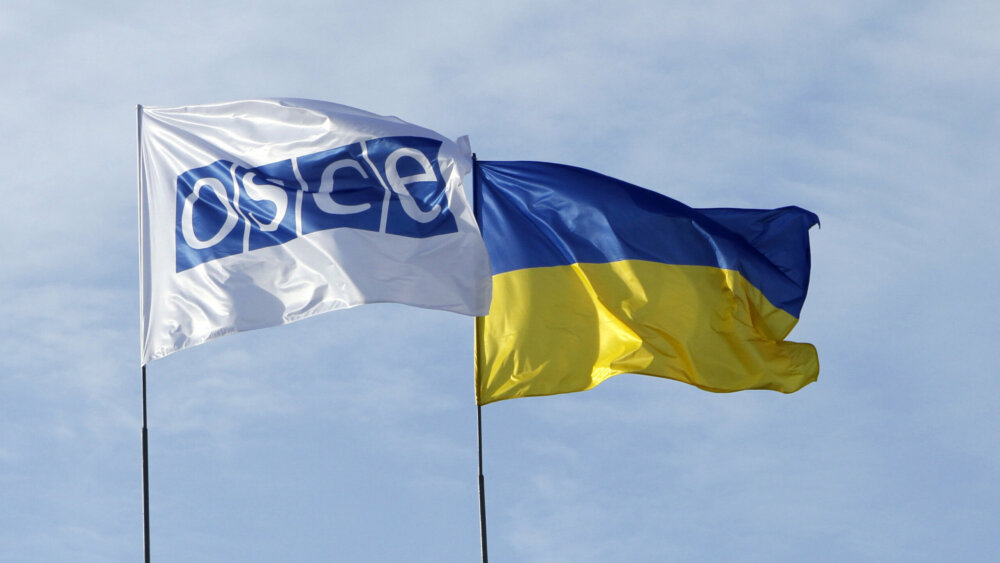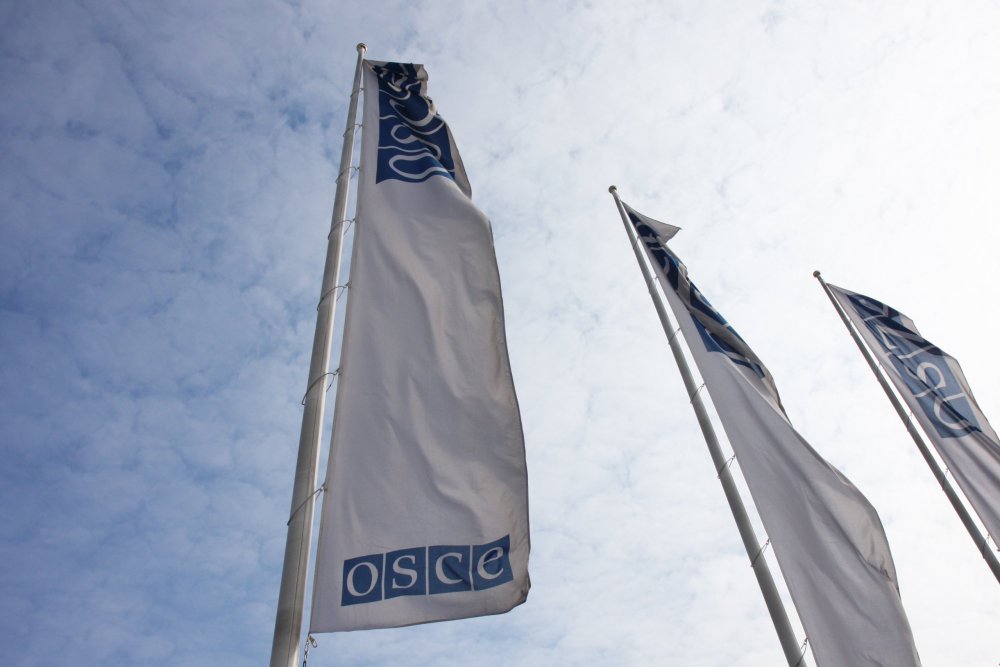OSCE/Mikhail Evstafiev

OSCE Ministerial Council to Open in Vienna Tomorrow Amid Continuing Tensions Between East and West
The 24th OSCE Ministerial Council (MC) meeting is scheduled to take place on 7 and 8 December in Vienna, Austria. The MC meeting, which takes place once a year in the country holding the OSCE Chairmanship, is attended by the foreign ministers (or their representatives) of the 57 OSCE participating States as well as of the OSCE Partner States.
The MC meeting is a high-level gathering aimed at adopting decisions that guide the future work of the OSCE. It is also an opportunity for dialogue among foreign ministers on common security challenges in the OSCE region.
For this year’s meeting, the Austrian Chairmanship expects between 40 to 45 ministers, among them US Secretary of State Rex Tillerson, Russian Foreign Minister Sergey Lavrov, Italian Foreign Minister Angelino Alfano, and Ukrainian Foreign Minister Pavlo Klimkin. All in all, around 1500 delegates will participate at the meeting, taking place in Vienna’s Hofburg, the former imperial palace.
The OSCE MC meeting will be preceded by a Parallel Civil Society Conference that includes NGO representatives from across the OSCE region. Civil society recommendations will be handed over to the OSCE Chairperson-in-Office, Austrian Foreign Minister Sebastian Kurz, on 6 December for consideration at the MC.
Foreign ministers will deliver prepared statements during the plenary meeting of the MC, which will serve as a barometer to determine the mood and the atmosphere for discussion.
Tense security environment
The Vienna OSCE Ministerial Council meeting will take place against the backdrop of an ongoing crisis in Euro-Atlantic security. Military tensions between Russia and the West are on the rise. The Ukraine conflict remains unresolved in its third year, and the implementation of the Minsk Agreements continues to be stalled. In addition, an observed increase in NATO and Russian military activities has created fear and suspicion on both sides.
Given this tense security environment, the OSCE MC meeting will provide a much-needed opportunity for informal meetings to take place on the margins of the MC, with a bilateral meeting between Tillerson and Lavrov leading the way.
Also, a meeting between the Foreign Ministers of Armenia and Azerbaijan is expected. This will be important in order to give further impetus to the discussions within the OSCE Minsk Group, co-chaired by France, the Russian Federation and the United States, that works to find a peaceful solution to the Nagorno-Karabakh conflict.
During the year, several important meetings took place, for example in October, when the President of the Republic of Armenia, Serzh Sargsyan, and the President of the Republic of Azerbaijan, Ilham Aliyev, met in Geneva. Also, Edward Nalbandian, Armenian Foreign Minister, and his Azerbaijani counterpart, Elmar Mammadyarov, met in Moscow in November, for talks organised by the OSCE Minsk Group.
The Vienna Ministerial Council provides ample opportunity for additional informal meetings, for example on the Russian proposal to send armed UN Peacekeepers to Ukraine. While both Ukraine and Russia seem to support UN Peacekeepers in eastern Ukraine, the devil lies in the details.
Experts argue that first, such a UN Peacekeeping Mission would have to be deployed throughout the entire area of Donbas, not just along the line of contact. Second, its main aim should be to advance the implementation of the Minsk Agreements, and to promote the ceasefire as well as the withdrawal of heavy weapons. One of the key objectives of the UN Peacekeeping Mission should be a clear link to a political solution, as outlined by the Minsk Agreements. Third, experts hold that the UN Peacekeeping Mission’s duration should be longer than six months in order for it to have a meaningful impact. Finally, a detailed discussion would have to take place on how such a UN Mission would cooperate with the OSCE Special Monitoring Mission to Ukraine.
Balanced package of decisions
Furthermore, the Austrian OSCE Chairmanship has tabled a balanced package of more than 20 draft decisions in all three security dimensions: the politico-military dimension, the economic and environmental dimension, and the human dimension.
The draft decisions address topics such as preventing and countering terrorism and violent extremism and radicalization that lead to terrorism, enhancing media freedom, promoting economic participation in the OSCE area, greening the economy, preventing trafficking in human beings, and countering illicit trafficking of small arms and light weapons.
An overall effort will be made to adopt a balanced package of decisions. This is particularly important since the last time a decision in the human dimension was adopted was three years ago at the OSCE Ministerial Council Meeting in Basel in 2014.
A planned decision to decide on the country holding the OSCE Chairmanship in the year 2020 had to be aborted, since Norway recently withdrew its candidacy.
Also, the Austrian Chairmanship has issued a draft political declaration that includes particulars on how to deal with the Ukraine crisis. While this is still negotiated, an adoption by consensus of such a declaration is highly unrealistic, given the deepening divisions on how to interpret the root causes of the Ukraine crisis.
The Austrian Chairmanship is also negotiating a draft political declaration on the general security situation in the OSCE. The adoption of this declaration is also highly unlikely, given the fundamentally divergent views with regard to the protracted conflicts in the OSCE area.
Negotiators, however, hope to be able to adopt a Ministerial Statement on the Negotiations on the Transdniestrian Settlement Process in the “5+2” Format, endorsing recent progress made.
On 3 November, chief negotiators from Chisinau and Tiraspol agreed to reopen the Gura Bicului-Bychok bridge, which serves as a key transportation corridor between Moldova and Transdniestria and as a direct connection between Chisinau and Odessa, an important port for trade in the region.
The reopening of the bridge, which was destroyed in the 1992 conflict and rebuilt in 2001, had an overall positive impetus on the negotiations, enabling the conflict parties to sign agreements on four additional important areas. They include the following: the apostilization of Tiraspol University diplomas; the reconnection of the telecommunication space between Moldova and Transdniestria; the functioning of the Moldova-administered Latin Script Schools in Transdniestria; and the access to farmlands in the Dubasari region.
Focussed discussion
Apart from the formal statements delivered by foreign ministers at the plenary meeting of the Council, the Austrian OSCE Chairmanship will hold three focused discussions. They will provide an opportunity for an open discussion on the issues of countering violent extremism and radicalization, protection of civilians in eastern Ukraine, and enhancing strategic stability in Europe.
The topic of countering violent extremism and radicalization has been a priority area for the Austrian Chairmanship throughout the year. OSCE Chairperson-in-Office, Foreign Minister Sebastian Kurz appointed Professor Peter Neumann from King’s College London as his Special Representative on this topic. Professor Neumann completed a comprehensive report on the issue of countering radicalization in the OSCE area, which contains a number of practical recommendations. The side-event at the Vienna Ministerial Council will offer an opportunity for high-level discussion on the findings of this report.
Improving the living conditions of civilians in eastern Ukraine is another important priority for the Austrian Chairmanship. Another planned side-event will therefore offer a forum to discuss issued related to crossing points, protection of critical infrastructure, and prevention of contamination of ground water. The aim is to identify possibilities for increased cooperation between the different actors and to develop concrete measures.
The third focused discussion among ministers will examine achievements made this year within the so-called structured dialogue on military security issues. This new dialogue format has been focused throughout the year on improving military-to-military contact as well as developing a systematic analysis of trends in military force postures and exercises. The aim is to help states better understand each other’s intentions, increase transparency, and help to prevent military confrontation caused by misinterpretation and misperceptions. The structured dialogue will continue next year under the Italian OSCE Chairmanship. OSCE Ministers will take stock and provide guidelines for next year’s discussion.
Italy to take over OSCE helm in 2018
Italy will take over the OSCE Chairmanship from Austria on 1 January 2018 for one year. While continuing to focus on the Ukraine crisis and the protracted conflicts in the OSCE area, Italy will place particular emphasis on threats emanating from the Mediterranean region as well as on migration-related issues.



Comments
* Your email address will not be published